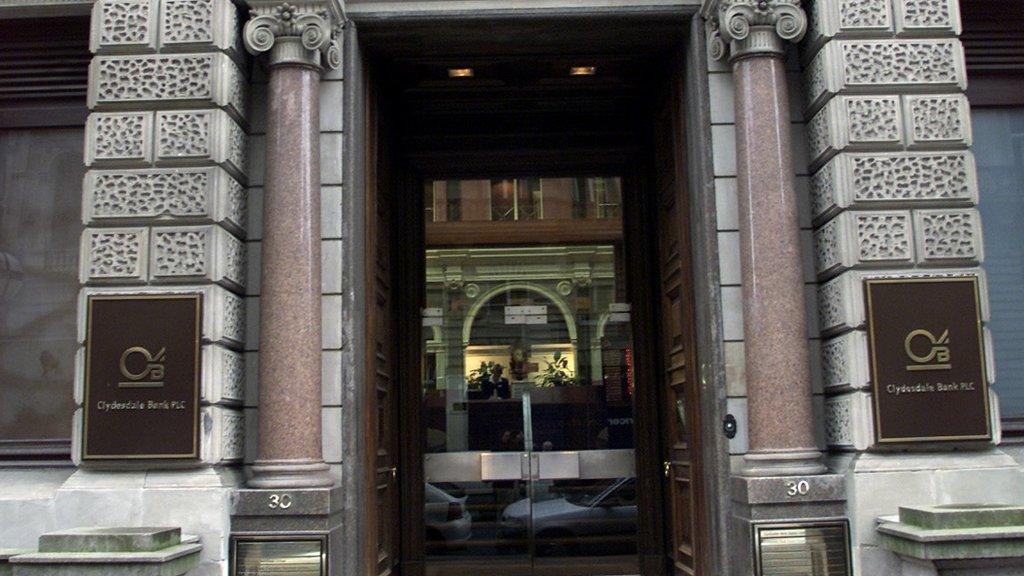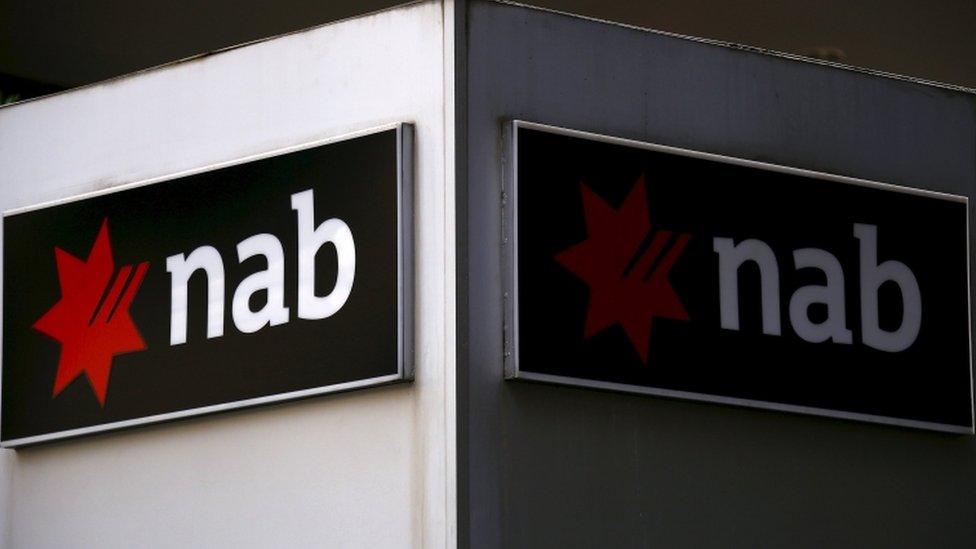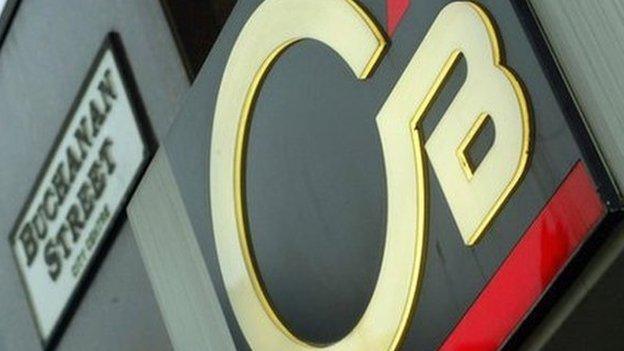The Clydesdale workhorse set loose
- Published

Clydesdale Bank is set to float on the London Stock Exchange on Wednesday.
Just what lies behind the move - and what lies ahead for the long-standing financial workhorse?
You could easily miss the grand old institution between Glasgow's George Square and Buchanan Street, where Clydesdale Bank has been a solid if often unexciting financial workhorse for 141 years.
When it opened these headquarters, it was then already 37 years into supporting the rapid growth of the empire's second city, including the financing of its pioneering water supply, and breaking taboos by lending to women.
Having absorbed other banks, it was taken over by the Midland in 1920, and thirty years later, it absorbed the North of Scotland Bank.
Demerging
The Clydesdale, which includes the Yorkshire Bank under its licence, has been more exciting in recent years - and not in a good way. It went into business lending, much of it in commercial property. And when the financial crunch came, it was left holding a lot of badly damaged assets.
That's one of the main reasons its owner, the National Australia Bank (NAB), is now offloading it. It's demerging it - handing three-quarters of the shares in the new company to NAB's existing shareholders, and the other quarter is being offered to institutional investors.

The Australians had sought a trade buyer - another bank attracted by the Clydesdale-Yorkshire footprint. But they couldn't find one, even when they took £5.6bn of bad loans off its books.
Things got worse, as the Clydesdale's exposure to mis-sold financial products became clearer. It was even heavily fined last year for its mis-handling of customer claims for mis-selling.
Volatile
The financial media Down Under has been unsparing in its criticism of the Melbourne bosses, for failing to get rid of a subsidiary that's seen from there as a British burden - particularly when attention and capital could be more profitably deployed in the recent Antipodean commodities boom.
Once NAB decided to float its subsidiary under a new name, CYBG, the UK regulator required it to provide a further £1.7bn in under-writing, from Australia, of any remaining claims from past mis-selling or law suits.
Even with wildly volatile stock markets in recent weeks, which is thought to have subdued the offer price, nothing was going to put the Melbourne bosses off their long-sought escape from the Clydesdale saga - nothing, that is, except a spanner thrown in the works by a ratings agency, which delayed the start of trading by 24 hours.
Those write-offs mean that the new bosses in St Vincent Place can claim to be free from the burdens of the past, and free to focus on a much-simplified bank - run independently from Glasgow for the first time in 95 years.
Regional pedigree
The boss is chief executive David Duffy, who helped steer Ireland's banking sector out of its recent calamitous state, and who is getting shares worth around £1.5m for taking charge of the float. He wants the Clydesdale to grow mortgage lending, which stood at nearly £20bn last year.
His team is piloting a digital banking platform, in an attempt to get ahead of the competition. Following the stock exchange float, that - for now - is likely to be the most significant change the 2.8 million customers see.
Rather than playing in the big property league, CYBG wants to attract more small and medium scale businesses. While Clydesdale has, very roughly, 15% of the Scottish bank market - dwarfed by their two main Scottish rivals - its new bosses see potential in spreading out of their Yorkshire base to other parts of northern England. If the so-called northern powerhouse is to get financial traction, they want to be there with the finance to power it.
Clydesdale Bank, or CYBG, has been marketed to investors as the most significant challenger to Britain's high street giants - with regional roots and pedigree as a basis for growth. Analysts quoted in Australia, where most of the shareholding is, have been led to believe that a high priority will be to get costs down, relative to earnings. That probably doesn't look that great from the staff's point of view.
Senior executives can spend less time on the plane to present their case to investors in Sydney, New York, Boston and in London, they can now get on with the business of proving those ambitions can be realised - and ensuring that message gets back to those Australian shareholders.
It's reckoned that only with a track record can David Duffy and his team start the conversation about expanding by acquisition from their relatively small base - unless, that is, an acquisitive rival gets to the Clydesdale first.
- Published2 February 2016
